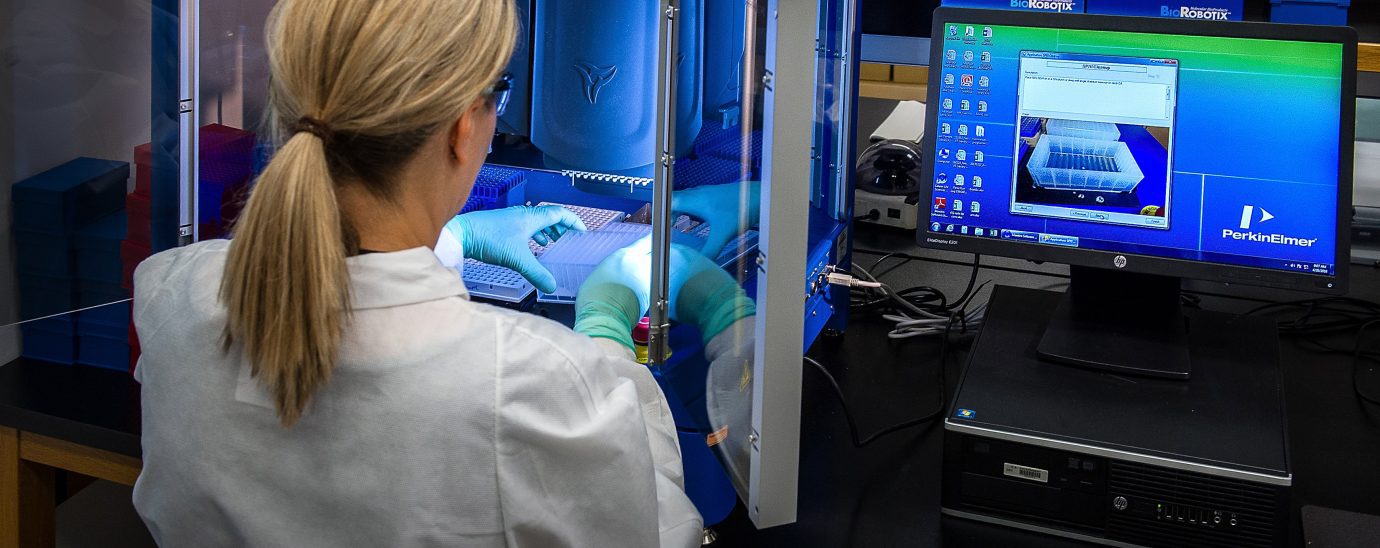Healthcare digitisation is seriously lagging

For all the talk about digitised healthcare, the sector is only where banking was in the 1990s. So how can it catch up? Can the Covid-19 pandemic crisis be a catalyst? Dr Jamil El Imad is Chief Scientist at NeuroPro gives us his answer.
If our health service was as digitised as the financial services industry, imagine how different our response to Covid-19 might have been.
Why do I say that? An article in Harvard Business Review looked at research from the McKinsey Global Institute (MGI) on the state of digitisation in sectors across the U.S. economy and found a large and growing gap between sectors, and between companies within those sectors. The researchers looked at 27 indicators that fell into three broad categories: digital assets, digital usage, and digital workers. The research showed that the latter two categories make the crucial difference. What really sets the leaders apart, is the third category: the degree to which they put digital tools in the hands of their employees to ramp up productivity.
The researchers found that in some instances, the gaps are huge: companies in leading sectors have workforces that are 13 times more digitally engaged than the rest of the economy. In lagging sectors, some are digital asset rich, but the workforce’s engagement is not uniform; some organisations have made progress in certain areas but have not yet addressed foundational tasks their workers perform.
In this regard, health sector digitisation is decades behind all other sectors. Healthcare was ranked as 17 out of 20 – fourth from the bottom. An example of erratic digitisation in the sector: many health care organisations use incredibly sophisticated technology in diagnostics and treatment, but substantial parts of their workforce use only rudimentary or no technology. For example, fewer than 20% of payments to health care providers and their suppliers are done digitally.
Today, while healthcare across the world is undergoing a crisis of great magnitude, the Covid-19 pandemic has exposed many of its weaknesses and a serious one is its slowness to digitise.
In this context, I believe that healthcare is at the point now where the financial services sector was in the early 1990s. The processes and interactions are not integrated, and digital assets are not being exploited. I think the reason is that over the past few decades, we have been patching digital solutions on old technology structures in the health sector instead of using digitisation as a means of transformational change and improvement, as was the case with the financial sector. It is as if we have poured concrete on the existing structure, making it harder to dismantle and renew.
But what do we mean by digitisation? If we think back to when it all started in the early 1970s (when I was working on the first-generation IBM machines), digitisation meant building transactional applications and automated processes. Thereafter, in the 1990s, the emphasis shifted from applications to communication and networks.
Now, communication is almost free, and software is in abundance. As such, the big value in digitisation has shifted from applications and communication to owning and monetising digital assets. Artificial intelligence (AI) requires big data, and unless we organise and digitise health data, we will not be able to exploit the best of what AI can provide to this sector.
Digitisation and AI will accelerate our scientific progress in diagnosing and treating diseases. It can decentralise and democratise healthcare, empower us with our health data and will help transform the sector from the clinically centric model to a model that encompasses, education, prevention, early diagnostics, and self-therapy.
Digitisation will help optimise the services and deliver more effective diagnostics and treatment with a significantly better patient experience. Today, one in three epilepsy patients are misdiagnosed, and one in five multiple sclerosis patients are misdiagnosed. These are not new brain disorders – epilepsy has been known for over 1,000 years.
Over the past decade, I have met, through my work, some of the most dedicated and passionate health researchers, physicians, and medical workers. If we empower them with modern digital tools, I am convinced that we will transform healthcare and bring it into the 21st century.
Healthcare digitisation could open the door to more efficient research, better productivity tools, better analytics, better collaboration, better diagnostics, better education and prevention, the introduction of software as a therapy, virtual care, personalised therapy, distributed virtual clinical trials and much more. It will lay the grounds for efficient and effective low-cost health solutions for everyone. In other words, it will help us provide vastly lower-cost health solutions to vastly more people.
READ MORE:
- Medical innovation in the COVID era
- Why the healthcare industry needs privacy enhancing technologies
- 4 Surprising Ways COVID-19 Has Forced the World to Innovate
- Google Cloud announces healthcare Data Engine to enable interoperability in healthcare
I hope that once the Covid-19 health pandemic is over, we will remember it, in years to come, as the catalyst to pushing healthcare, technology-wise, into the 21st century. This may happen if we act now and find the courage to tackle the many challenges of health sector digitisation head-on.
For more news from Top Business Tech, don’t forget to subscribe to our daily bulletin!
